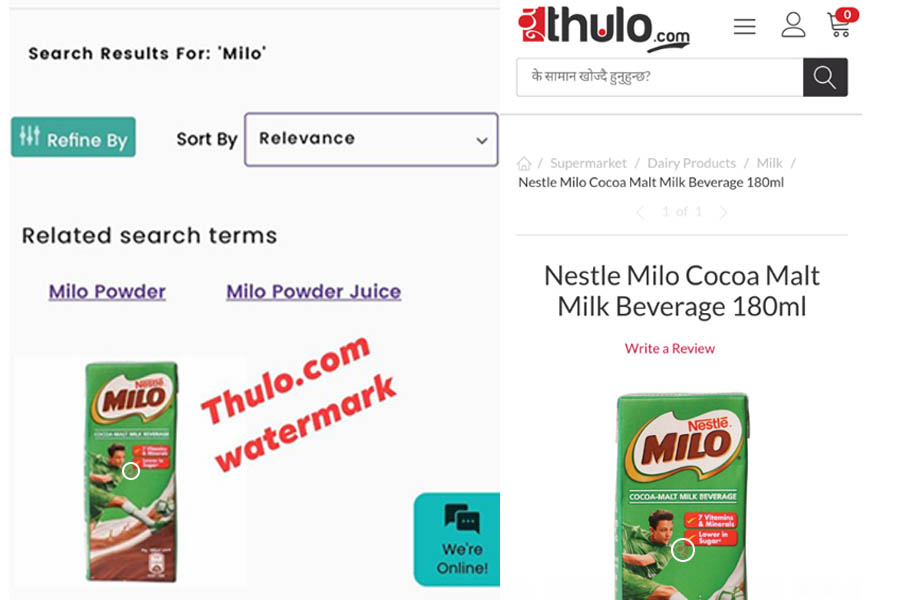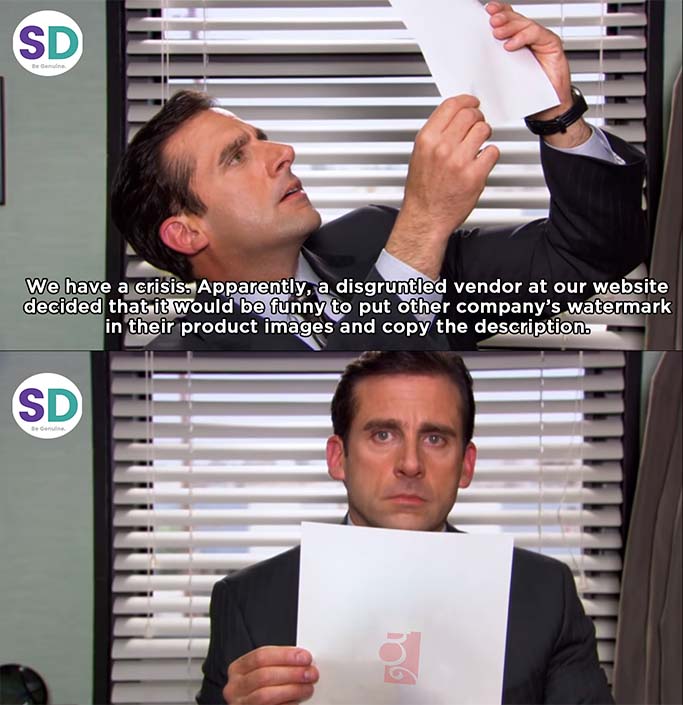
Desperate times call for desperate measures. The supply of essential goods has been the prime issue of concern during the country-wide lockdown against the spread of COVID-19. And to meet those demands, big businesses and even small entrepreneurs have shifted their business model from selling one type of product to those essential goods. That’s absolutely commendable on their part – doing what needs be. Relating it all to the matter at hand, Sastodeal being one of the leading e-commerce platforms in the country, has also ventured in the mission to fulfill people’s current demands.
Let me remind you that Sastodeal isn’t typically the one to deal with products like foods, groceries, and others. The company has crossed paths with certain items like induction cookers in the past, but that’s only because electronic and other lifestyle products are its primary business. And its ability to adapt to the current trend deserves all the praise. After all, they do have resources to facilitate deliveries, from their online portal to the employees – all you gotta do is introduce suppliers of such commodities into the system.
Everything was going fine, and by fine I mean how every online shopping platform facilitating the essential deliveries including Sastodeal are being overwhelmed with orders. But we came to stumble upon the news of how Sastodeal was, without permission, using the product photographs and their description of such goods on their website from Thulo.

Here, Thulo.com is another prominent e-commerce platform in Nepal that has been serving all kinds of products including essential goods right from the start. As a result, they have a large catalog of product images and descriptions accumulated throughout the years. In terms of the content itself, there’s no way to secure the exclusivity. But the team at Thulo has been implementing a watermark of the company’s logo into many of the product images photographed and edited using in-house resources.
What Thulo’s co-founder says
Bibek Karki, (co-founder, Thulo), after noticing the “mistake” from Sastodeal’s end had apparently contacted Amun Thapa (founder & CEO, Sastodeal) about the issue. However, after feeling a lack of reciprocation on the gravity of the situation, Mr. Karki took it to Entrepreneurs for Nepal (Facebook) to vent about the absence of a proper response.
The primary complaint here seems to be how Sastodeal was handling the whole ordeal. Mr. Karki had messaged Mr. Thapa regarding the matter at hand about a week ago but was met with zero progress. If you follow-up on that Facebook thread, you’ll even find Mr. Karki vowing that he’d provide Sastodeal and other similar platforms with their existing photographic resources if asked. These are trying times and our collective co-operation will only get us through this. However, that simply isn’t a valid justification against unauthorized usage of some else’s property.
The harsh truth about copyright regulations in Nepal’s context is that it’s almost non-existent.
We have been in Thulo’s shoes ourselves and understand how the blatant copy of one’s property can be disheartening. It is clear that every single one of the e-commerce platforms in Nepal currently facilitating the delivery of essential goods is operating at capacity and how this may have outweighed the evident copyright issue. But that’s a fairly avoidable complication right there.
Also read: E-commerce platforms offering delivery of essential goods during the lockdown
The other side of the story
Before decisively putting blame on Sastodeal, you gotta remember that it’s a marketplace as well, meaning the company allows third-party sellers (vendors) to sell their products alongside Sastodeal’s own arsenal of offerings. According to them, those vendors are given backend panel to upload product images, descriptions, etc. while a team performs a moderate level of quality check, especially in terms of pricing.
Moving on, many of us may have an inaccurate mental image about the operational size of Sastodeal. After all, it goes head-to-head against Daraz, Nepal’s leading e-commerce platform and a company backed by Alibaba itself. Therefore it must have similar resources, no? Sadly no. Apparently, Daraz’s system doesn’t allow any watermarked or similarly altered images to be uploaded by its vendors. Maybe that’s a simple thing to program, maybe not. Still, impressive!
Speaking strictly in terms of customer experience, it may seem similar. But the sheer volume & resources of Sastodeal is nowhere near that of Daraz. It is a Nepali startup (can we still call it a startup after all these years?) company with local investments, working with local talents. And while they are already jam-packed with orders for essential items, the copied contents and images of Thulo may have gone unnoticed in the eyes of its QC team.

The vendor in question here is “SupplyBox“, who has copied images (with Thulo’s watermark) and description in their products up for sale at Sastodeal. These have since been removed from the site and Sastodeal has even issued an apologetic statement on it, but you get why Thulo is upset with it. We’re not saying the vendor is exclusively to blame because being a mediator, Sastodeal should have a clear control regarding what goes on in its platform.
It all boils down to this!
Unauthorized usage of someone else’s work is simply not acceptable – no argument there. Thulo is right to call out Sastodeal on its lack of swift and appropriate response. They are absolutely swamped but the company should figure out how to delegate its resources properly so that one’s way of operation doesn’t come at the expense of others.
People have been spitballing ideas like taking a legal course of action or just leaving it be. In a sensitive time like this, companies should be working together to help out the needy in any way they can, by co-ordinating & sharing their resources. However, that can’t be a just ground for what’s happened here.
[socialpoll id=”2623342″]






![Best Gaming Laptops in Nepal Under Rs. 250,000 (रु 2.5 Lakhs) [2025] Best Gaming Laptops Under 2.5 lakhs in Nepal [Feb 2025 Update]](https://cdn.gadgetbytenepal.com/wp-content/uploads/2025/02/Best-Gaming-Laptops-Under-2.5-lakhs-in-Nepal-Feb-2025-Update.jpg)
![Best Gaming Laptops in Nepal Under Rs. 120,000 (रु 1.2 Lakhs) [2025] Best Budget Gaming Laptops Under Rs 120000 in Nepal 2025 Update](https://cdn.gadgetbytenepal.com/wp-content/uploads/2025/05/Best-Budget-Gaming-Laptops-Under-Rs-120000-in-Nepal-2024-Update.jpg)
![Best Laptops Under Rs. 80,000 in Nepal [2025] Best Laptops Under 80,000 in Nepal March 2025 Update](https://cdn.gadgetbytenepal.com/wp-content/uploads/2025/03/Best-Laptops-Under-80000-in-Nepal-March-2025-Update.jpg)
![Best Gaming Laptops in Nepal Under Rs. 200,000 (रु 2 Lakhs) [2025] Best gaming lapotp under 2 lakhs Nepal Feb 2025](https://cdn.gadgetbytenepal.com/wp-content/uploads/2025/01/Best-Gaming-Laptops-Under-2-Lakh-Nepal-Feb-2025-Update.jpg)

![Best Mobile Phones Under Rs. 15,000 in Nepal [Updated 2025] Best Phones Under 15000 in Nepal 2024 Budget Smartphones Cheap Affordable](https://cdn.gadgetbytenepal.com/wp-content/uploads/2024/03/Best-Phones-Under-15000-in-Nepal-2024.jpg)
![Best Mobile Phones Under Rs. 20,000 in Nepal [Updated] Best Mobile Phones Under NPR 20000 in Nepal 2023 Updated Samsung Xiaomi Redmi POCO Realme Narzo Benco](https://cdn.gadgetbytenepal.com/wp-content/uploads/2024/01/Best-Phones-Under-20000-in-Nepal-2024.jpg)
![Best Mobile Phones Under Rs. 30,000 in Nepal [Updated 2025] Best Phones Under 30000 in Nepal](https://cdn.gadgetbytenepal.com/wp-content/uploads/2025/01/Best-Phones-Under-30000-in-Nepal.jpg)
![Best Mobile Phones Under Rs. 40,000 in Nepal [Updated 2025] Best Phones Under 40000 in Nepal 2024 Smartphones Mobile Midrange](https://cdn.gadgetbytenepal.com/wp-content/uploads/2024/02/Best-Phones-Under-40000-in-Nepal-2024.jpg)
![Best Mobile Phones Under Rs. 50,000 in Nepal [Updated 2025] Best Phones Under 50000 in Nepal](https://cdn.gadgetbytenepal.com/wp-content/uploads/2025/01/Best-Phones-Under-50000-in-Nepal.jpg)
![Best Flagship Smartphones To Buy In Nepal [Updated] Best flagship phone 2025](https://cdn.gadgetbytenepal.com/wp-content/uploads/2024/07/Best-Flagship-Phones-who-is-it-ft-1.jpg)